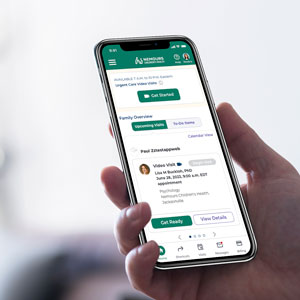Rett Syndrome
Gene: MECP2
Protein: methyl-CpG-binding protein 2
Clinical Characteristics
Classic Rett Syndrome
- Typically affects females (males with mosaicism or 47,XXY have been reported)
- Normal prenatal and newborn history
- Apparently normal psychomotor development for first 6 to 18 months of life
- Short developmental plateau followed by regression in language and motor skills
- Cognitive impairment/mental retardation without further regression
- Repetitive, stereotypic hand movements with loss of purposeful hand movements
- Autistic features
- Acquired microcephaly
- Seizures
- Bruxism (teeth grinding)
- Impaired sleeping pattern
- Breathing disturbances
Atypical Rett Syndrome
- Typically affects females
- Loss or reduction of hand skills, speech, and other communication skills
- Acquired microcephaly
- Regression followed by recovery of interaction
- May or may not have other features of classic Rett syndrome
- Other presentations with variable courses and different ages of onset
Severe Neonatal Encephalopathy
- Affects males; rare in females
- Severe neonatal-onset encephalopathy with microcephaly
- Abnormal tone and involuntary movements
- Severe seizures
- Breathing abnormalities
- Often die before second year of life
PPM-X Syndrome
- Females, mild nonprogressive mental retardation
- Males, severe mental retardation associated with:
- “PPM” (Psychosis, Pyramidal signs, Macro-orchidism)
- Parkinsonian features - resting tremor, slowness of movements, and ataxia
MECP2 Duplication Syndrome
- Affects males; can affect females with an associated translocation or insertion
- Infantile hypotonia
- Severe mental retardation
- Poor speech development
- Progressive spasticity
- Recurrent respiratory infections
- Seizures
Inheritance pattern: X-linked
What Can Be Learned From This Test
Tier 1 testing is performed by sequencing the entire coding region of MECP2. This will detect point mutations, small deletions and small insertions. Reflexive testing for a partial or whole gene deletion by fragment analysis can be carried out; please note on submission form if this tiered approach is being requested.
A negative test result does not rule out a diagnosis of Rett syndrome. Sequencing alone will detect mutations in about 80% of individuals with classic Rett syndrome and in about 40% of individuals with atypical Rett syndrome. Deletion/duplication testing increases the detection rates to about 88% and 43%, respectively.
Sample Requirements
Draw 2ml–4ml of blood in EDTA/purple-top tube (minimum of 1ml–2ml for infants).
Turnaround time: 10-14 business days per tier
CPT Codes and Cost
Tier 1: Full Gene Sequencing
- Code: 81302
- Cost: $685
Tier 2: Dosage
- Code: 81304
- Cost: $300
Known Variant Testing
- Code: 81303
- Cost: $225

